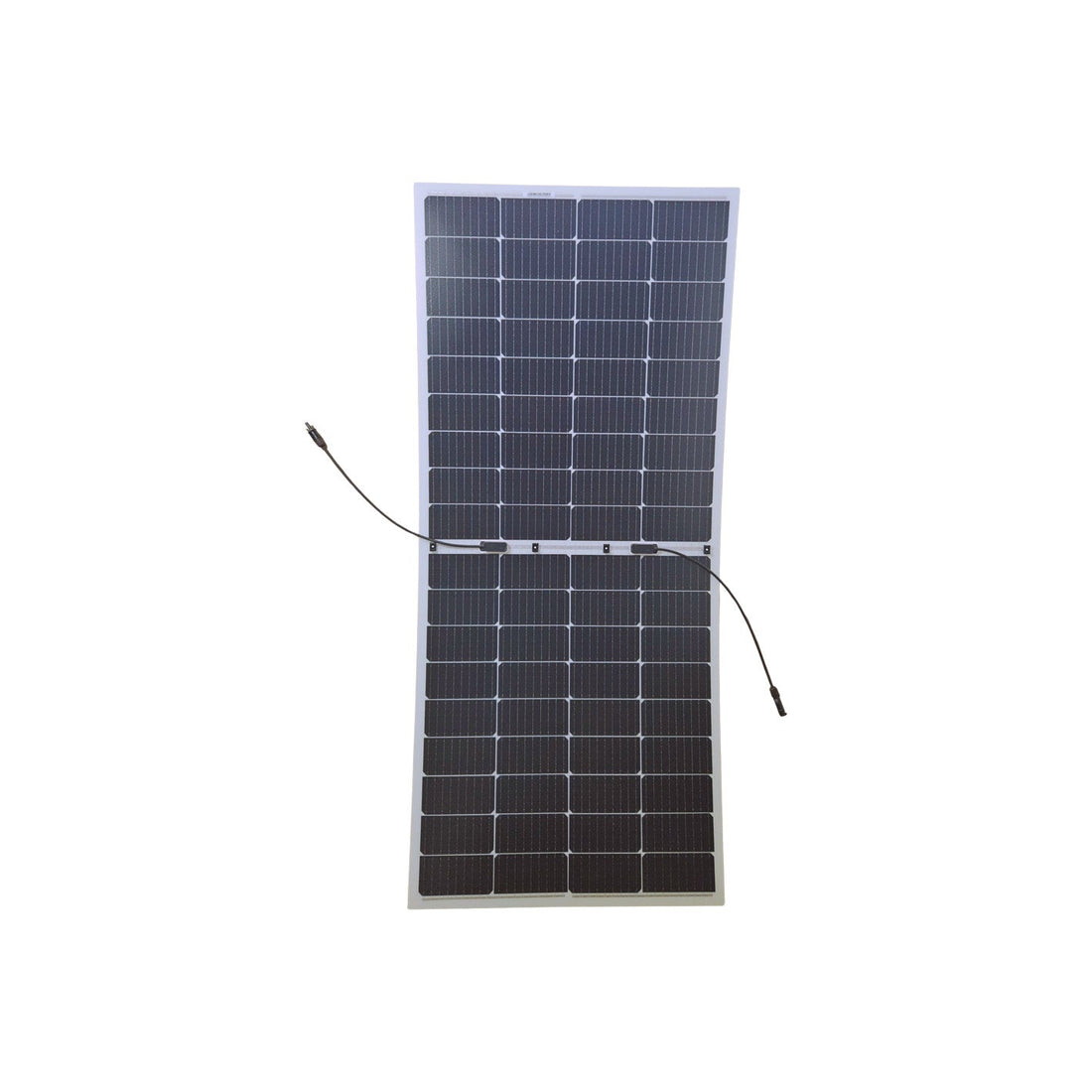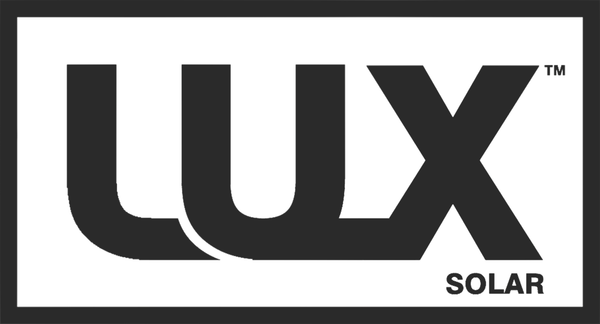
Are Flexible Solar Panels Worth the Hype? Here's Everything You Need to Know
Flexible solar panels are increasingly popular in the world of caravans, boats and specialised applications due to their lightweight, versatile, and durable design. But what exactly are flexible solar panels, and are they the right choice for your needs? In this article, we'll answer the most frequently asked questions to help you decide whether flexible solar panels are worth the investment.
What are Flexible Solar Panels?
Flexible solar panels are lightweight photovoltaic panels that use thin solar cells—typically made of monocrystalline silicon or other advanced materials like thin-film technology. These panels are designed with bendable layers, enabling them to curve to fit surfaces with slight or moderate curvature.
Unlike traditional rigid solar panels, which are larger and encased in thick glass, flexible panels are compact, frameless, and lightweight—making them ideal for applications such as caravans, boats.
Why Choose Flexible Solar Panels?
Flexible solar panels offer several advantages for mobile or off-grid living, including:
- Lightweight Design: Perfect for installations where weight is a critical factor, such as on caravan roofs, boat decks, or tiny homes on wheels.
- Adheres to Curved Surfaces: Can bend up to 30 degrees (depending on the model), allowing installation on curved surfaces like airstream trailers, yacht decks, or unusual roof shapes.
- Portability: Often thinner and easier to transport or reposition than rigid panels.
- Ease of Installation: Flexible panels can be mounted quickly and easily using adhesive, Velcro, or screws, without the need for heavy mounting racks.
Are Flexible Solar Panels as Efficient as Rigid Solar Panels?
Efficiency in solar panels refers to how effectively they convert sunlight into energy. Flexible solar panels generally have similar efficiency ratings to high-end rigid panels, especially those made from monocrystalline silicon cells.
However:
- Flexible panels' thinner design may make them slightly less heat-tolerant compared to rigid panels, and their lifespan may be shorter under extreme conditions.
- For long-term, high-power applications, rigid panels are likely more durable and cost-effective over time.
That said, modern flexible panels often achieve efficiencies of 18%–23%, making them a competitive and viable solution for powering off-grid essentials like lights, fans, or small appliances in mobile setups.
How Durable Are Flexible Solar Panels?
Flexible solar panels are designed with resilience in mind. Many are protected by strong polymer layers (such as ETFE or PET), which shield the solar cells from the elements while preserving flexibility.
Their durability depends on the brand, type, and conditions of use:
- Marine Environments: Panels with ETFE coatings are preferred in saltwater environments due to their superior resistance to corrosion.
- Weatherproofing: Most flexible panels are waterproof and UV-resistant, making them suitable for outdoor use.
- Mechanical Stress: Avoid over-bending panels beyond their specified limits, as this can damage the cells and reduce their efficiency.
While flexible panels are less prone to cracking than glass-faced rigid panels, their softer surface can be prone to scratches, so regular cleaning and care are advised.
How Do I Install Flexible Solar Panels?
Flexible solar panels are straightforward to install and offer various mounting options:
- Adhesive Bonding: Use a strong marine-grade adhesive or double-sided tape to secure the panels to the roof of your caravan or boat.
- Velcro Strips: Ideal for portable configurations, Velcro allows you to remove or reposition the panels as needed.
- Screw Fixing: For a more permanent installation, you can use screws with washers through designated mounting holes (if available).
Tip: Ensure that the surface is clean and smooth before attaching panels. To avoid shading, position them in areas where sunlight isn't obstructed by antennas, vents, or other obstructions.
Can I Walk on Flexible Solar Panels?
While some marine-grade flexible solar panels advertise the ability to be walked on, this should generally be avoided unless explicitly specified by the manufacturer. Walking on panels can create micro-cracks in the solar cells, reducing efficiency or causing early failure.
If walking is required (e.g., on a boat deck), look for panels designed specifically for heavy-duty use and ensure clean footwear to prevent scratches or dirt build-up.
How Long Do Flexible Solar Panels Last?
A well-maintained flexible solar panel can last anywhere from 5 to 15 years, depending on factors such as:
- Quality of Materials: Panels with ETFE coatings and monocrystalline cells often have longer lifespans.
- Environmental Conditions: Panels exposed to extreme temperatures or frequent bending may wear out faster.
- Usage and Maintenance: Regular cleaning, careful handling, and avoiding over-bending will extend the life of your panels.
Though their lifespan is typically shorter than rigid panels, advancements in materials are steadily improving their durability. Sunman solar panels stocked by LUX Solar offer a manufacturer warranty of 5 years.
What Are the Limitations of Flexible Solar Panels?
While flexible solar panels offer unmatched versatility, they do have a few limitations:
- Lifespan: Generally shorter than rigid panels.
- Heat Tolerance: Can degrade faster in extremely hot climates compared to glass-encased panels.
- Cost: Flexible panels cost more per watt than rigid panels due to their specialized design.
- Susceptibility to Scratches: Their soft surface is more prone to scuff marks or scratches.
Are Flexible Solar Panels Worth It?
If you prioritize portability, lightweight design, and easy installation, flexible solar panels are worth it—especially in the context of caravans, boats, or off-grid applications.
However, for stationary systems or long-term power generation on a larger scale, rigid panels offer better cost efficiency and longevity. Always consider your specific power needs and installation constraints before making a decision.
